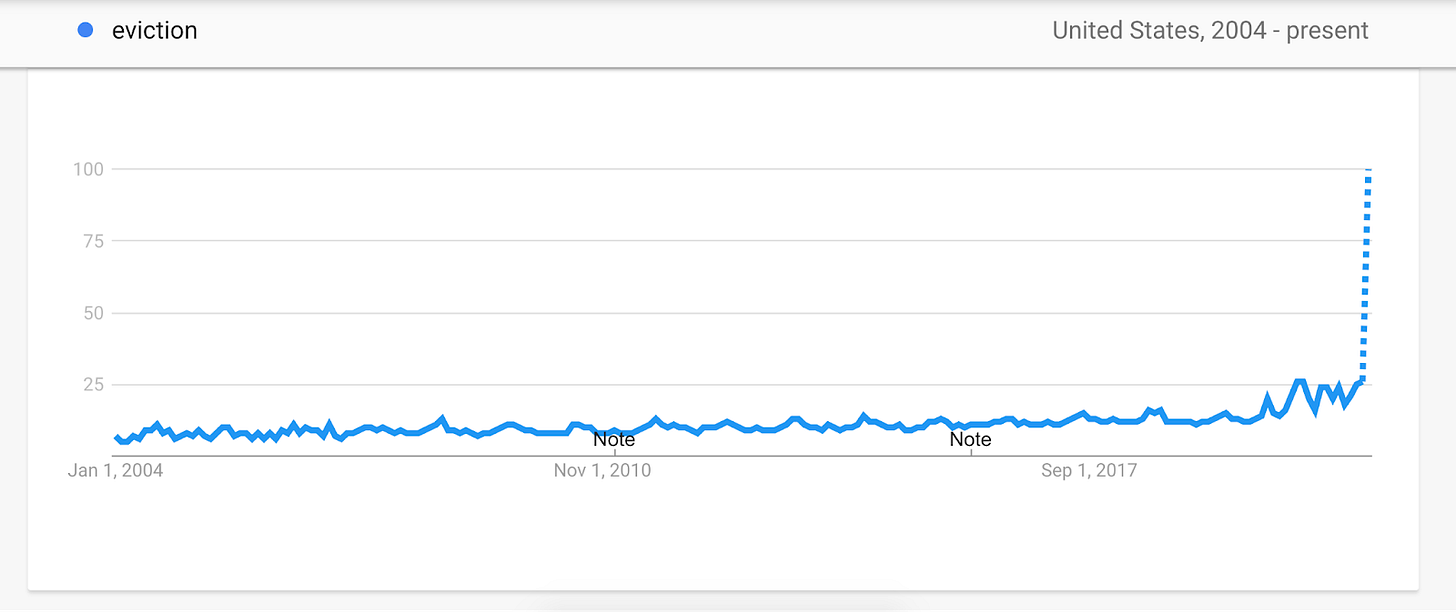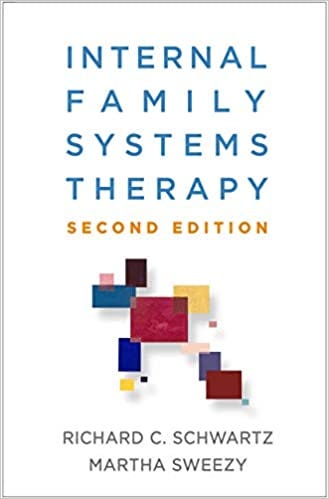🌀🗞 The FLUX Review, Ep. 14
August 5th, 2021
Episode 14 — August 5th, 2021 — Available at read.fluxcollective.org/p/14
We’re a ragtag band of systems thinkers who have been dedicating our early mornings to finding new lenses to help you make sense of the complex world we live in. This newsletter is a collection of patterns we’ve noticed in recent weeks.
“The most exciting phrase to hear in science, the one that heralds new discoveries, is not ‘Eureka!’ but ‘That's funny…’”
— Isaac Asimov
🧠🗣️ Cultivating our inner dialogue
When we look to improve ourselves — with new skills, better rituals, healthier habits, etc. — we often focus on our actions. We may overlook another important factor: our inner dialogue. Our thoughts follow a meandering, in-the-present dialogue, one that often involves conflict. We experience this as an internal conversation, complete with words, images, and feelings. Our capacity to adapt to the complexity of the world depends on the outcome of these dialogues. Do they act as a positive force or a negative one?
We might feel stuck when neither “side” budges. We might spiral into a vicious cycle when the dialogue turns into battle (aka “beating ourselves up”). We might freeze when the inner conversation fails to cohere. We are better off when our dialogue is constructive, fun, and generative. Fortunately, we can cultivate our inner dialogue, and the time we invest is likely to have more return than any material gain.
One tool for doing this is the Internal Family System (IFS) practice (also see this week’s book recommendation below). This practice frames the components of our internal dialogue as an “internal family.” This conceptual family forms a system of interdependent relationships. We can discern various parts, reach out to them, and understand how they connect to each other. With some effort, we can learn to become aware of our inner dialogue, recognize our parts in it, and help steer the conversation to be productive.
If a dive of this depth seems intimidating, consider starting small. Next time you find yourself feeling “bad,” consider listening to the inner conflict that generates this negative emotion and see if you can find some kindness for both sides of the conflict. After all, all of them are amazing, wonderful, beautiful you. And in their own ways, they are striving for you to be happy.
🛣️🚩 Signposts
Clues that point to where our changing world might lead us.
🚏🍔 McDonald’s will resume mask mandates for customers and employees
Like many companies, McDonald’s dropped its mask mandate in May after COVID-19 vacations became widespread. But because the CDC is now recommending that people in areas of high transmission wear masks again, the fast-food chain is bringing back the mask policy at most of its restaurants. What’s more, big-box retailers like Target and Kohl’s are again requiring masks for employees, though not for customers.
🚏🏥 A slew of mega-corps are hiring Chief Medical Officers
Ever since COVID-19 hit, major companies have started hiring executives tasked with maintaining employee health, making remote and hybrid work safe, complying with public-health regulations, and more. Big firms as varied as Delta Air Lines, PepsiCo, Tyson Foods, Stanley Black & Decker, and Royal Caribbean have all added Chief Medical Officers since the pandemic started.
🚏🏚 Search traffic for “eviction” hit an all-time high when the moratorium expired
Before and just after the CDC’s ban on evictions expired last Saturday, Google search traffic for “eviction” in the US spiked and hit its highest point since Google started collecting data in 2004. The CDC issued a new, “temporary” eviction moratorium, which covers 90% of the US population, on Wednesday.

🚏🎮 The Chinese government is now taking aim at its gaming industry
Just weeks after the Chinese government took a hammer to the country’s education tech industry, it’s turning its ire to the video game industry. An influential Chinese state-run newspaper blasted video games as “spiritual opium,” raising widespread fears of heavy regulation and causing the stocks of gaming giants like Tencent to slump.
🚏⛈️ The UAE is using drones to zap clouds and create artificial rain
The United Arab Emirates, facing heatwaves and situated in a bone-dry desert, is testing a new technology that has drones fly into clouds and shock them with electricity to trigger rainfall. An Instagram video of a torrential cloudburst over the arid country was reportedly thanks to these zap-happy drones.
🚏🌌 Big tech is embracing the idea of a “closed metaverse”
Tech analysts have theorized about the emergence of an “open metaverse,” an interoperable network of virtual worlds like Fortnite and Roblox where you can play, work, and socialize. Now, Mark Zuckerberg is saying that Facebook’s future lies in being a closed metaverse. The Facebook boss wants people to live their digital lives, from work to entertainment, on Facebook’s digital properties.
🚏🔌 A small-time crypto miner is monetizing “free” Starbucks electricity
While crypto-mining is typically done on massive, warehouse-sized scales, one enterprising miner developed a handheld mining rig that he plugs into outlets at Starbucks to mine Bitcoins for free. The $875 mini-miner, popularized in a viral TikTok video, earns about $9 in coins every month, using electricity that would normally cost about $16.
📖⏳ Worth your time
Some especially insightful pieces we’ve read, watched, and listened to recently.
We Must Burn the West to Save it (Vox) — Details how indigenous residents of the Western US have long used controlled burns to maintain healthy forest ecosystems, and how professional land managers are rediscovering many of their same methods after centuries of artificial fire suppression have left the West at risk of devastating infernos.
Resilience in Complex Systems (Irhum Shafkat) — A well-illustrated primer on how feedback loops in complex adaptive systems give rise to attractors and therefore resilience (unless the system is pushed too far from equilibrium). Finishes by showing how these systemic lenses can help us better address climate change.
Typos, Tricks, and Misprints (Aeon) — A fascinating explanation of how English picked up its bizarre spelling system: it was the result of organic, decentralized, and bottom-up adoption of a new technology (namely, the printing press), plus some quirks of timing and shifts in pronunciation after the system had been crystallized.
Finance as Culture (John Luttig) — Traces how low interest rates, tech reaching the top of its S-curve, increasing inequality, and increasing legibility of that inequality through social media have created a culture where everyone is chasing equity and betting on financial lotteries. Then, describes a few possible futures for the “financialization of culture,” concluding that it’s not going away anytime soon.
How to Understand the ROI of Investing in People (Maia Josebachvili) — Defines a new metric called “Employee Lifetime Value,” or “ELTV,” for quantifying the business impact of HR policies, then suggests four broad ways in which companies can invest in their employees and thus reap greater ELTVs.
The Spring Paradox (Steve Mould) — Uses a physics experiment with springs and ropes to illustrate Braess’s Paradox: removing part of a network, such as a road network, can sometimes make it flow more quickly, such as by reducing travel times on the roads. The video then discusses the game theory underlying the counterintuitive pattern.
Michael, Dwight and Andy: the Three Aesthetics of the Creative Class (Alex Danco) — Traces how the American class system has evolved over the last few decades, including the three subtly-different status games that groups at the top of the “class ladder” are playing, then imagines how the rise of the “Very Online” class may shake things up.
📚🌲 Book for your shelf
An evergreen book that will help you dip your toes into systems thinking.
This week, we recommend Internal Family Systems Therapy, Second Edition by Richard C. Schwartz and Martha Sweezy (2019, 321 pages).
Some books contain insights that go beyond their stated or even intended purpose. This is one of those books. Don’t let the word “therapy” confine your imagination. Hidden within this book is a systems thinker’s guide to exploring the system of you. Try to read it through this lens. Let the therapy bits be secondary, a clever subplot that helps paint the broader picture.
Each of us is a complex system, and the duality of both being the system and observing the system can be rather confounding. The authors of this book offer a framework to — however fleetingly — manage this duality. They invite us to courageously dive into the possibility that we ourselves are systems, full of overlapping, reinforcing, and balancing feedback loops.
And after all, if you’re interested in studying systems, the system of you is a perfect learning material. It’s always here and ready for you to dance with, intentionally or not.
Even if this particular approach ends up not being your cup of tea, the book offers a fascinating account of applying systems theory in one’s own quest for self-understanding, and perhaps may inspire you to start your own exploration.
🕵️♀️📆 Lens of the week
Introducing new ways to see the world and new tools to add to your mental arsenal.
This week’s lens: What would it take to succeed?
Suppose someone outside your team brings up a novel idea. Your team has been down this road before and immediately starts listing all of the reasons that it will not work. Or, perhaps you are the one who shared the idea and get frustrated at how everybody immediately seems to jump to all of the things that are wrong with it. These conversations often go nowhere, dismissing out of hand ideas that might be valuable.
We want to have productive conversations even when suggestions don't fit our current mental models. However, we don't want to accept ideas blindly — especially new ideas that take a lot of investment. How can we think carefully about the challenges associated with an idea without turning the conversation into a pool of negativity?
One thing we can do is to slightly shift the frame that we use to talk about challenges. Instead of asking ourselves, “Why won't this work?”, we can ask ourselves “What would it take to make this succeed?”. Both of these framings acknowledge that success is not a given. However, the framing of “What would it take to make this succeed?” creates a problem-solving mindset instead of a problem-finding mindset.
We can apply a similar shift in the other direction: when a group seems overly enthusiastic about an idea, instead of asking ourselves, “What makes this awesome?”, we can ask ourselves, “What are the risks and how do we mitigate them?”. In either case, the goal is not to have an unambiguously positive or an unambiguously negative mindset. The goal is to shake up any initial biases we bring to the problem.
So next time you find an exploration turning into a recitation of why an idea is purely bad or good, try flipping the frame and asking people what they would do to make the idea succeed.




